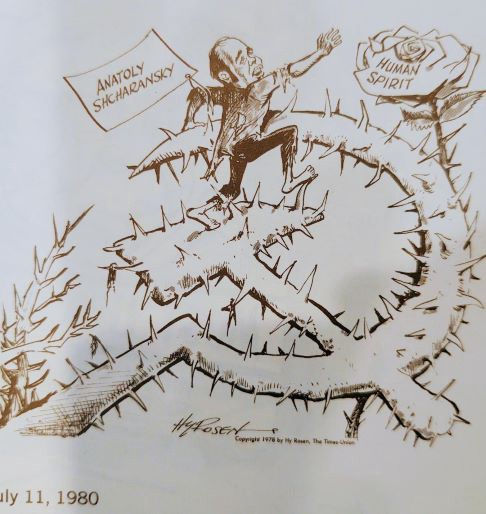Finding Inspiration for Writing My Upcoming Novel
- carolcosman
- Mar 14, 2021
- 2 min read

I’ll never forget the time my mother told me about my grandfather’s voyage to Ellis Island. On July 4th, 1921, while his ship entered port, he stood on deck and witnessed a grand display of fireworks as Lady Liberty welcomed her newcomers — everyday people searching for a better life. To Zeyde — my grandfather — it was a dream come true. Having inherited a box of old family photos and documents dating back from late nineteenth century Russia, I began to wonder about the place that drove my ancestors to America in the 1920s and my cousins to Israel in the second half of the century. These were ordinary people living in extraordinary times. My inspiration for writing a historical novel set in Russia and Israel began as I explored these heirlooms.
In my upcoming novel Dissonance, one of my characters realizes that in order to move forward, one must look back. The time period of my book takes place some fifty years after my grandparents finally found safe haven on the shores of the U.S. As I studied the photos of my ancestors, I wondered, how did these people manage to survive? Because they were Jewish, they were confined to an area spanning western Imperial Russia to Polish-Lithuania called the Pale of Settlement. They led impoverished lives — think Fiddler on the Roof. Life in the Pale became unbearable. Pogroms — mob attacks — broke out. The worst period took place between 1903 and 1906 with the pillaging of villages and mass murder of whole Jewish populations. Between 1880 and 1920, two million Jews fled the Russian Empire, many ending up in America and the United Kingdom.
“in order to move forward, one must look back.”

My mother once told me an amazing story about her mother, my grandmother Ray Belin Rosen. At nineteen, Ray and her little niece were forced to hide in a barn under a bale of hay from pitchfork-wielding Cossacks. As the Cossacks approached and stabbed their pitchforks into each bale, one punctured her thigh. But Ray had to keep silent for fear of being discovered. Eventually, Ray left for America where she met and married my grandfather.
Jump forward to the Khrushchev-Brezhnev era, the time and setting for my book. Although “official” discrimination against minorities didn’t exist, its undercurrent remained intact. Those brave enough to speak up against the system either by written word or by public protest, were thrown into prisons, work camps, sent into exile or even executed for “treasonable” acts against the State. Despite the risks, these remarkable dissidents and refuseniks found ways to make their voices heard and changed the course of Russian history. It is my hope that through their narratives woven throughout my book, their work is not forgotten.




Comments